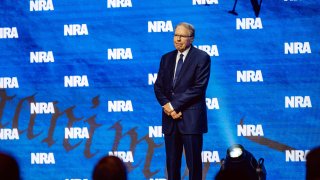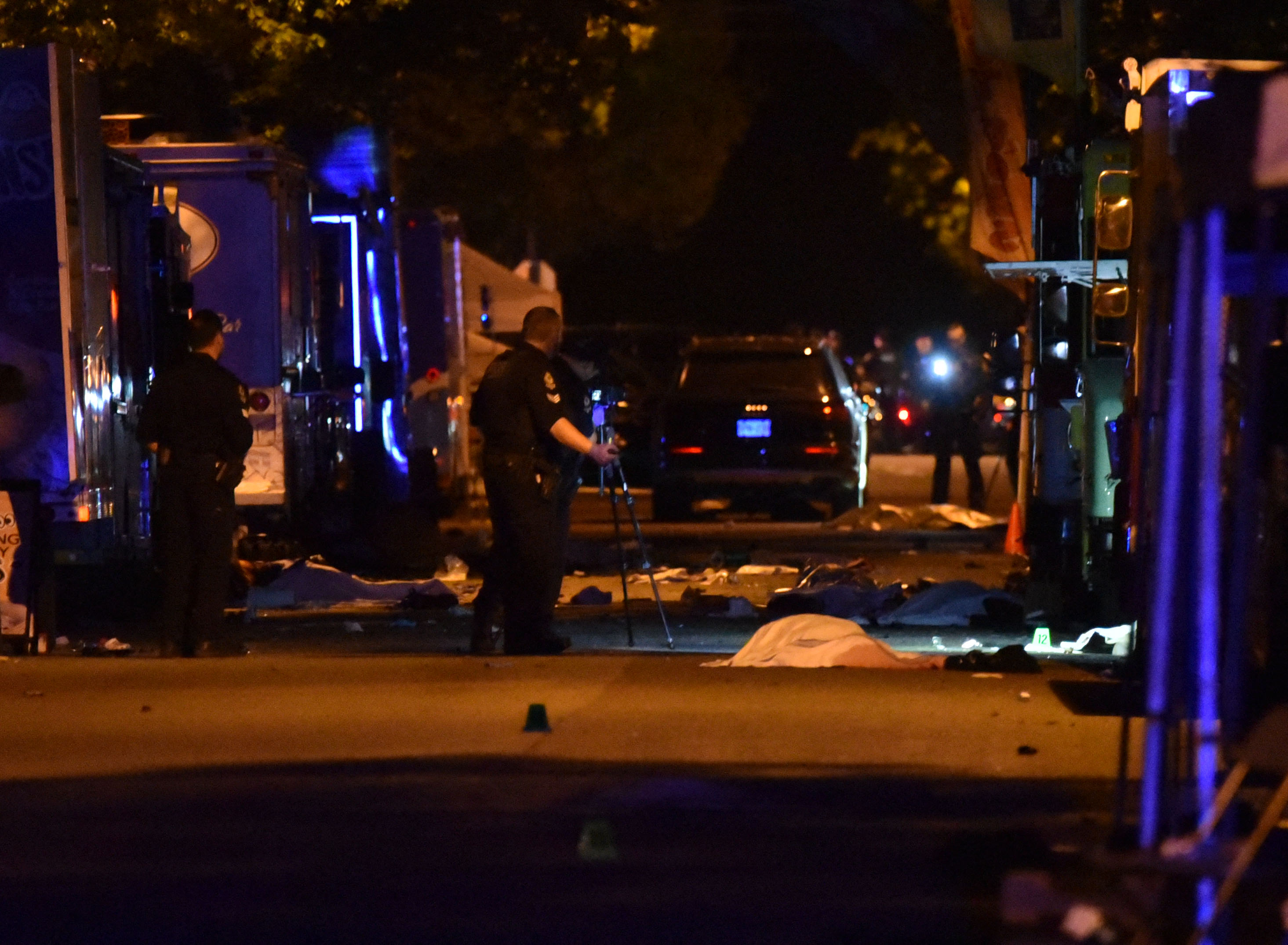
Wayne LaPierre, executive vice president and chief executive officer of the National Rifle Association (NRA), during the ILA Leadership Forum at the NRA annual convention in Indianapolis, Indiana, US, on Friday, April 14, 2023.
A New York judge will begin weighing remedies Monday against the National Rifle Association and some of its former leaders, months after a jury found the gun rights group and its executives liable in a civil corruption trial.
In a second phase of the trial, state Supreme Court Judge Joel Cohen will determine whether to appoint an independent monitor to oversee the NRA for three years and whether to bar former NRA executive Wayne LaPierre from ever returning to lead the organization or any of its affiliates.
Stream Connecticut News for free, 24/7, wherever you are.
In February, a jury determined that LaPierre, 74, diverted millions of dollars away from the NRA to live luxuriously, while the gun rights group failed to properly manage its finances and adopt a whistleblower policy.
The case was brought on by a lawsuit filed in 2020 by New York Attorney General Letitia James, who accused LaPierre and other current and former executives of flouting state laws and internal policies to enrich themselves.
Get top local Connecticut stories delivered to you every morning with the News Headlines newsletter.
The jury found that LaPierre violated his statutory obligation to discharge the duties of his position in good faith, as did John Frazer, the group’s current corporate secretary and former general counsel, and Wilson “Woody” Phillips, the NRA’s former treasurer and chief financial officer.
Joshua Powell, a former chief of staff and executive director of general operations, was also a defendant. But Powell reached a settlement with the attorney general’s office before the trial began.
During the trial, James’ attorneys painted the NRA as “Wayne’s World,” which they said was full of free private jets, expensive meals, travel consultants, private security and trips to the Bahamas for LaPierre and his family.
U.S. & World
Jurors said LaPierre caused $5.4 million in monetary harm to the NRA, but that he has already repaid at least $1 million of that. Phillips caused $2 million in monetary harm to the NRA, they found, while Frazer did not cause any monetary harm to the group.
Frazer is the only individual defendant who still works for the NRA. The jury determined that he made or authorized a false statement in the NRA’s annual filings, but that there was no cause to remove him from his post.
However, the jury found there was cause for LaPierre’s removal from the NRA. LaPierre served as the NRA’s CEO and executive vice president for more than 30 years before he announced his resignation at the beginning of January, days before the start of the trial, citing health issues.
Attorneys for the defendants had filed motions to set the jury verdict aside, but the judge denied those requests in June.
Cohen has set aside two weeks for the latest court proceedings to determine whether to award non-monetary relief.
In an appeal, LaPierre’s attorney, P. Kent Correll, challenged the remedy proposed by the attorney general that seeks to permanently bar LaPierre from serving the NRA or any of its affiliated entities.
Doing so would censor LaPierre, Correll said during oral arguments in June, adding that his client does not live in New York and that he “should be free to associate with whomever he wants in whatever way he wants without government interference.”
“He’s paid the price. He’s retired. He’s not coming back,” Correll said, according to a court transcript. “But he does want to keep his right to associate freely with whomever he wants and to speak freely.”
Earlier this week, the parties announced a stipulation agreement on the appropriate remedy for Phillips, which removes him from the trial’s second phase.
Phillips, who is retired, will be prohibited from holding fiduciary positions with any New York nonprofit for 10 years. After a decade, he can resume serving if he first notifies the attorney general’s office and completes a training program.
He will still have to pay $2 million in damages, the attorney general said.
The attorney general also proposed imposing restrictions on Frazer and requiring him to undergo training.
“New Yorkers deserve to know that when they support a not-for-profit, those donations are being used to advance its mission, not squandered on lavish perks for staff or cronies,” James said.
Attorneys for LaPierre, Phillips and Frazer did not respond to requests for comment.
In a statement to NBC News, NRA counsel William A. Brewer III said the attorney general cannot show that the NRA has continued violating any laws. “Therefore,” he said, “the relief the NYAG seeks in the form of a monitor is unwarranted.”
The NRA said it has terminated those who took advantage of the group and has ushered in a fresh slate of leaders, including a new chief compliance officer, an internal auditor and a new president.
In May, the organization replaced Frazer with a new general counsel, although he was re-elected to serve as corporate secretary, the NRA said.
The NRA has operated as a nonprofit charitable corporation in New York since 1871. Its assets are required by law to be used in a way that serves the interests of its membership and advances its charitable mission.
NRA membership dues and contributions have drastically fallen in the last few years, court records show.
Dues dropped from about $170 million in 2018 to nearly $62 million in 2023, according to a court exhibit that contains the NRA’s audited financial statements. Contributions were nearly cut in half in that time frame.
The NRA said the decline was a direct result of the attorney general's lawsuit.
“Our adversaries have been predicting the demise of the NRA for decades,” NRA spokesperson Andrew Arulanandam said. “We are still here after a protracted and politically motivated attack against us by the New York Attorney General and gun control groups.”
Gun safety advocates said the corruption trial has shown that outside intervention is necessary to keep the NRA accountable and re-establish trust with members and donors.
“It is imperative that their corrupt behavior be checked by the court,” said Emma Brown, executive director of gun control advocacy organization Giffords.
LaPierre may be gone, but some longstanding directors and officers are still in leadership, said Nick Suplina, the senior vice president for law and policy at Everytown for Gun Safety, a national gun violence prevention nonprofit.
“The NRA can’t be allowed to play by its own rulebook,” he said.
This story first appeared on NBCNews.com. More from NBC News:



